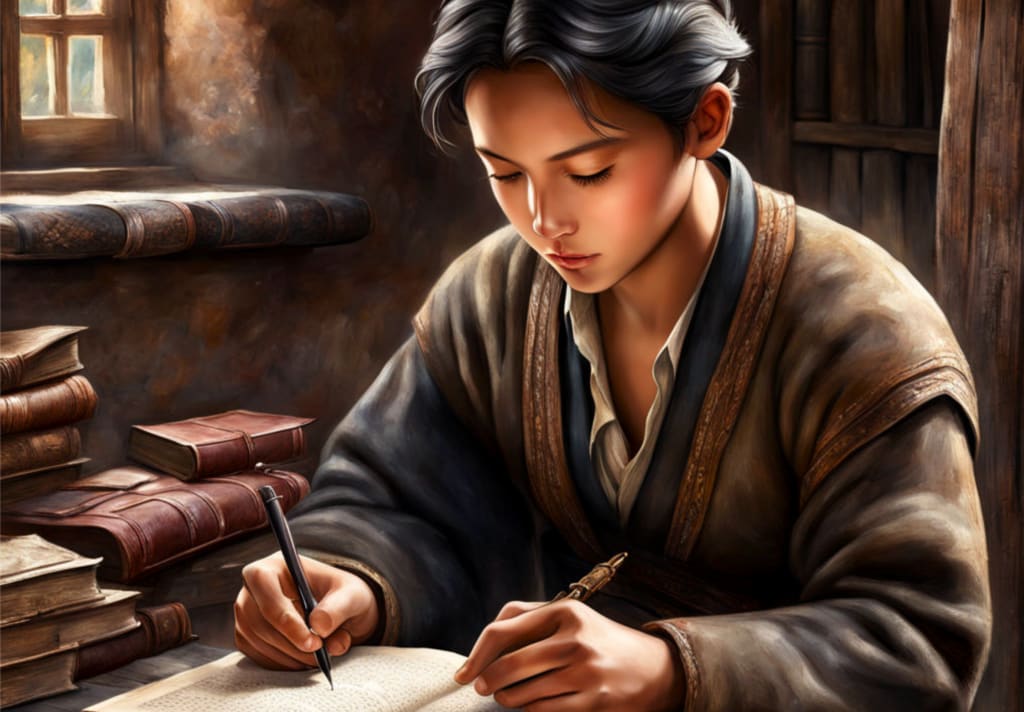The History of Marginalia
Why academics throughout history have marked their books.

Marginalia has not always been the taboo subject it is today. At times in history, it was considered to show great intelligence and be a valuable part of any thinker's life.
For those who don't know, marginalia is the process of adding your thoughts and feelings to the margins of books. It is you interacting with the book uniquely. If you are a re-reader of your books, it also allows you to connect with yourself throughout the years.
It is a process that I have started in the last couple of years, increasing my research potential. This allows my reading to be productive. Not only do I remember what I have read more, but I also use more of what I write in my articles.
This article was virtually written in the margin of a book I recently read, The Bookseller's Tale by Martin Latham.
Penalties for marginalia
Now, before all of you think I am a murderer of literature, I don't mark all my books. I was lucky enough to inherit a vintage collection of Dickens from my mother, which I would never have dreamed of marking. But cheap paperbacks are fair game for my mind dumps.
At the beginning of literature, marginalia was popular amongst many academics. However, it began to fall out of popularity during the reign of King Henry VIII. King Henry would impose dire penalties on anyone found writing in his books. Considering how he dealt with his wife, we can only wonder whether many academics lost their heads for writing in the margins.
As time progressed, the Victorian era saw an all-out assault on marginalia. Academics and librarians would remove the marginalia found in books and rebind them. Milton's marginalia was bleached out of the books he read as people welcomed the clean page. We can only guess what we have lost with this removal.
Along with this attitude came the production of mass-produced literature and lending libraries. Margins were made smaller to save money, and patrons could not mark books that would go to the next reader.
Supporters of marginalia
It is fair to say that although discouraged, brave academics still added to their books. Writing in books for them was seen as a type of engagement, and as much as history disapproved of the practice, it had a fine pedigree of approvers.
Keats wrote such detailed annotations in his copy of Paradise Lost that the book became within a book. It is fair to say that even those who disapprove of the practice enjoy reading other people's thoughts.
The Diary of Virginia Woolf consists of her thoughts on many works of literature and is a popular classic. Although I do not know, she was likely also a writer in the margins.
However, it is fair to say that not all those who write in margins provide us with valuable thoughts. Hitler's marginalia, when discovered, read more like an apocalyptic mantra than insights into his reading. Still, it provides us with a valuable insight into the man himself.
Why you should use marginalia
Interacting with the book changes our experience
In marginal annotations of books, one can discover one's former selves. When one realizes the tremendous evolution of one's being which occurs in a lifetime one is bound to ask: ... did I learn my lesson here on earth? - Henry Miller
I do not always have a pen, it depends on my reading. When I read the classics, I usually annotate what I am reading, and I have to say this makes my reading experience more profound and satisfying.
What you mark and how you do it is as individual as our reading tastes. Some will use a pencil, and others a pen. Some have a system of codes and marks to note down passages of interest, while others just underline.
I use a system of underlying passages I enjoy, marking quotes I want to save with a Q. Those passages that stop me in my tracks I mark with a star. If a writer mentions something I want to research later, be this a place or a book, I put it into a box. In the margins, I argue with the author or write my initial thoughts as they come to me. It is a conversation between me and the book.
Stephen Hawking was an avid marginalia writer who designed a system of over 400 symbols and lexicons to mark passages.
Marginalia divides readers
I have encountered people who never mark their books and never touch their margins. Although it appears to be becoming more popular again, it is a subject that divides readers. It can rank alongside contentious issues such as corner-turning and spine-breaking. Yes, I do both of these as well.
Books are more than something to read for me; they are part of my life, so I live with them. My copy of To Kill a Mockingbird is so creased and loved that it has to be put back together once a year. Sure, I have a new shiny copy, but none feel as good to read as my old battered edition.
Marginalia is also my way of talking to my children when I am gone. The thought of my daughter, an avid reader, picking up a book I have marked and reading it, knowing what I was thinking at the time, makes me smile. If I am not there to discuss books with her, then at least she will get an insight into what I thought as I read.
Recently, I bought a secondhand copy of Middlemarch, which a previous reader has annotated, which has fascinated me. What sort of person were they, why did they mark their book, and were they looking for something specific or just generally marking passages? All these questions will remain unanswered but have added to the book's appeal for me.
Consider using marginalia to enhance your reading experience. If you still can't bring yourself to mark the pages, ensure you read with a pad and pen beside you so that those random thoughts that pop into your head can be recorded somewhere.
About the Creator
Sam H Arnold
Writing stories to help, inspire and shock. For all my current writing projects click here - https://linktr.ee/samharnold







Comments (4)
New subscriber here. I was taught never to write in a book in school however in religious studies I still have my Bible marked, marginal comments perhaps labeling myself young as a heathen of sorts. In a study course, marginal comments were highly recommended for studying pharmaceutical mathematics and nursing theory. I love the notion of someone reading one of my favourite books with comments and thoughts to find. A happy Saturday afternoon read; thank you for this interesting contribution!
This is interesting and something I wasn't aware was a thing with an actual name. I imagine there are a lot of text books with interesting notes. I wrote about a book I had read three times over 40 years and my experience with it changed each time. I wish I had left some notes for myself. I really enjoyed this.
thanks
While I think you may have sold me on this in principle, in practice, I am unlikely to have a pencil to hand...